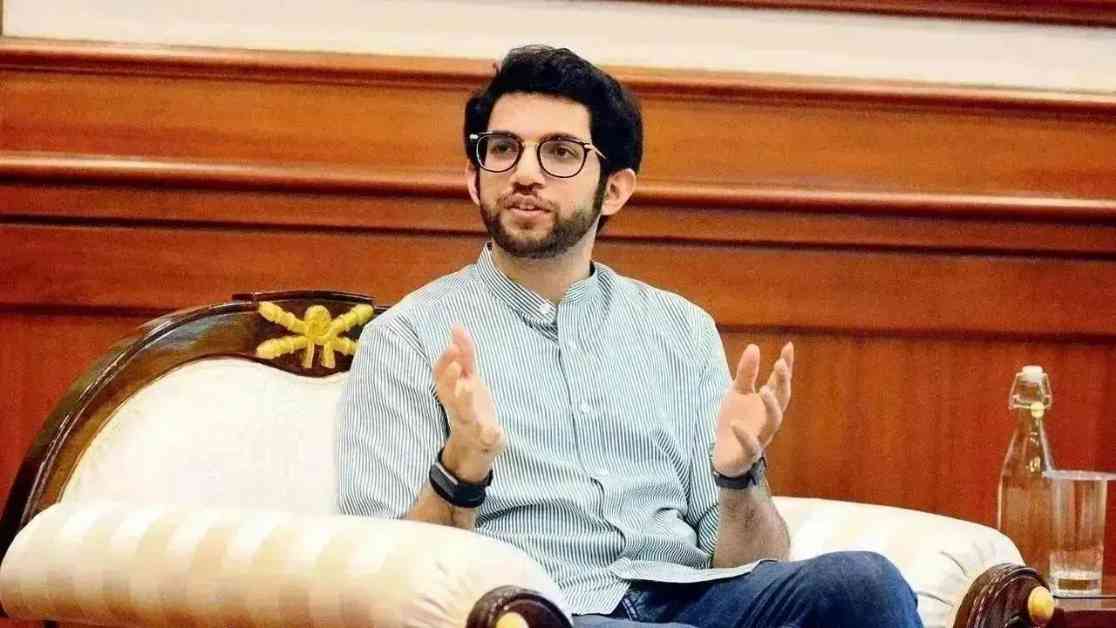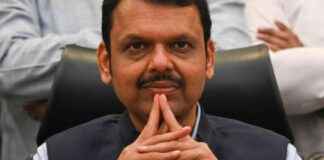Shiv Sena (UBT) leader Aditya Thackeray recently made headlines as he met with Congress leader Rahul Gandhi in Delhi, amidst growing tensions within the MVA opposition coalition. The meeting took place following NCP (SP) chief Sharad Pawar’s controversial decision to honor Maharashtra Deputy CM Eknath Shinde, causing a stir within the political landscape. This move has led to a series of events that have left many questioning the stability of the alliance and the future of Maharashtra politics.
The MVA, comprising the Shiv Sena, NCP, and Congress, has been facing turmoil after Sharad Pawar presented the Mahadji Shinde Rashtra Gaurav Puraskar to Eknath Shinde, a move that has sparked outrage within the Shiv Sena camp. Shinde’s defection from the Shiv Sena to the BJP in 2022, resulting in him becoming the Chief Minister of Maharashtra, has created rifts within the coalition and raised concerns about its sustainability.
Aditya Thackeray’s meeting with Rahul Gandhi is seen as a strategic move to address the allegations against the Election Commission of India (ECI) regarding the conduct of elections. The duo’s discussions are crucial in navigating the current political landscape and determining the future direction of the MVA alliance. Thackeray’s upcoming meeting with AAP leader Arvind Kejriwal adds another layer of complexity to the situation, as the fallout from the recent Delhi assembly elections continues to reverberate.
It is evident that the political dynamics in Maharashtra are shifting, with power plays and allegiances being tested at every turn. The Mahayuti alliance’s victory in the 2024 Maharashtra elections dealt a significant blow to the MVA, further complicating the already fragile coalition. The Shiv Sena’s labeling of Eknath Shinde as a “traitor” reflects the deep divisions within the alliance and raises questions about the future cohesion of the group.
As the MVA grapples with internal challenges and external pressures, the role of key leaders like Aditya Thackeray becomes increasingly important in steering the alliance towards a unified vision. The recent developments underscore the delicate balance of power in Maharashtra politics and highlight the need for strategic alliances and cohesive leadership to navigate the complex landscape.
Expert Insights: Navigating Political Turmoil
Political analysts view the recent meetings between Aditya Thackeray, Rahul Gandhi, and Arvind Kejriwal as crucial moments in shaping the future of Maharashtra politics. Dr. Priya Sharma, a political science professor at a leading university, explains, “The interactions between key leaders in times of crisis can determine the course of political events. It is essential for parties to find common ground and work towards a shared goal to ensure stability and progress.”
Challenges Ahead: Unity Amidst Disarray
The challenges facing the MVA alliance are multifaceted, requiring a delicate balance of power, ideology, and pragmatism. As the coalition grapples with internal dissent and external pressures, the need for unity and strategic decision-making has never been more critical. Aditya Thackeray’s role as a key player in the alliance will be pivotal in navigating the turbulent waters ahead and charting a course towards a more stable and cohesive political landscape.
As the political drama unfolds in Maharashtra, one thing is clear – the future of the MVA alliance hangs in the balance, with each meeting, decision, and statement shaping the course of events. The coming days will be crucial in determining the fate of the coalition and the direction of Maharashtra politics as a whole. Stay tuned for more updates as the story continues to evolve.




















